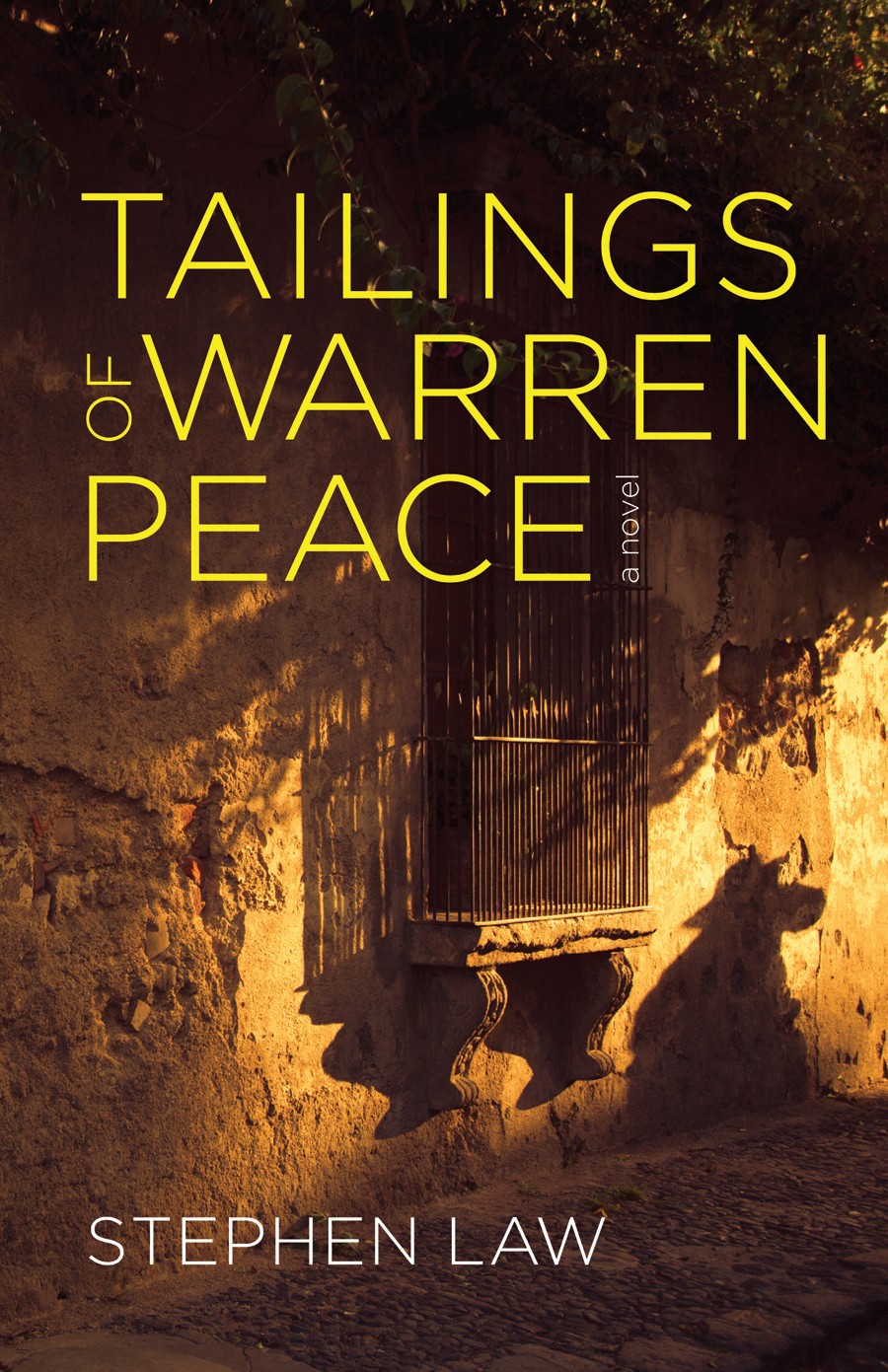Please support our coverage of democratic movements and become a supporting member of rabble.ca.
Someone is affixing pink pages to the light poles on Warren’s street, each containing a small fragment of text. One sentence at a time, the mysterious notes tell a dark tale of familial love and loss.
Stephen Law’s unlikely protagonist follows these snippets of story until he is caught in a narrative that threads itself through the coal mining towns of Nova Scotia, the corporate boardrooms of Toronto and the highlands of Guatemala. “We live in ‘story’ — we are surrounded by it, motivated and even at times grieved by it,” says Law, who began working on Tailings of Warren Peace nine years ago.” We are often only exposed to fractions of a story, and then they flit away or are forgotten. The larger story requires us to stay with it, to follow it through.”
Celina Arayo is the link to the larger story being told in Law’s debut novel. It is she who posts the pink narrative on Warren’s street; she believes that an incident in his past makes him a perfect ally in her quest for justice. Initially reluctant, Warren joins Celina and her comrades as they work to expose the link between Magma International, a Canadian mining company, and a tragedy that befell Celina’s community in Guatemala.
To those familiar with corporate practices in South America, the plot of Tailings of Warren Peace will be eerily familiar. Law has drawn inspiration for the story from his experience in Latin American solidarity movements. In the 1980s he lived in El Salvador and in later years he joined human rights delegations in Columbia and Guatemala. More recently, Law has worked with the Mining the Connections Campaign to expose links between Canadian companies and conflicts in Latin America.
Thankfully, Law’s writing has less in common with a Human Rights Watch report than with the novels of Isabelle Allende or John le Carré.
“I wanted to write a leftist thriller. I had grown up on Cold War pulp fiction. Solidarity work had as much, if not more, intrigue, suspense, adventure — and the politics were much better too,” says Law, who acknowledges he is inspired by non-genre authors in equal measure. “Some of the great literature that has come out of the region expresses magical realism in storytelling — Gabriel Garcia Marquez, for example. And I wanted to touch on that.”
That influence is most obviously seen in Law’s protagonist, Warren Peace. Warren lives a reserved life in Toronto, largely disconnected from others. He left his hometown in Nova Scotia and retreated from his family, which had “made a deal with the earth, that if they were able to take out the coal, the earth would keep a little piece of them in turn, and the overflowing pubs and blackened spittle were reminders there were debts unpaid.”
His strongest connections are to the dead: he works in the city’s cemeteries, repossessing unpaid-for gravestones. Sometimes when he touches the stones he is visited by impressions of the dead as they were when they were living. But Warren is no superhero; Law has little interest in having his character use his strange ability to save the day. Instead, to prove Magma’s complicity in the deaths in Guatemala, Celina and her new friends engage in some thrilling cloak-and-dagger work.
A large part of that dangerous burden falls on Meena Awinyolan, an empathetic law student who lives next door to Warren and who becomes involved in Celina’s cause. The dynamic young woman carries the book’s second half, with an earnestness and commitment to action that runs counter to Warren’s self-doubt and fear of failure. In the end, achieving social justice is a group effort, and as Law explains: “it is no great leap for anyone to spar with Goliath — solidarity is for everyone.”
In some respects, Tailings for Warren Peace is two books in one. The first: a page-turning thriller, complete with unsavoury villains and life-and-death chases through the jungle. The second: a novel with literary ambitions that makes creative use of newspaper clippings, stock exchange data and other non-narrative text to comment on the importance of story itself.
Law walks a fine line between the two, something he is happy to do. “I made a conscious effort to write across genre — literary in scope and thriller in style,” he says. “I would love to see a social justice genre the same way we have mystery or romance genres. Not so that it gets marginalized, but so that it becomes visible and can be celebrated.”
Yutaka Dirks is a tenant organizer and writer living in Toronto. His fiction and essays have appeared in literary journals and activist publications including the White Wall Review, Rhubarb Magazine and Beautiful Trouble: A toolbox for revolution. He has a serious love for stories of all stripes.



